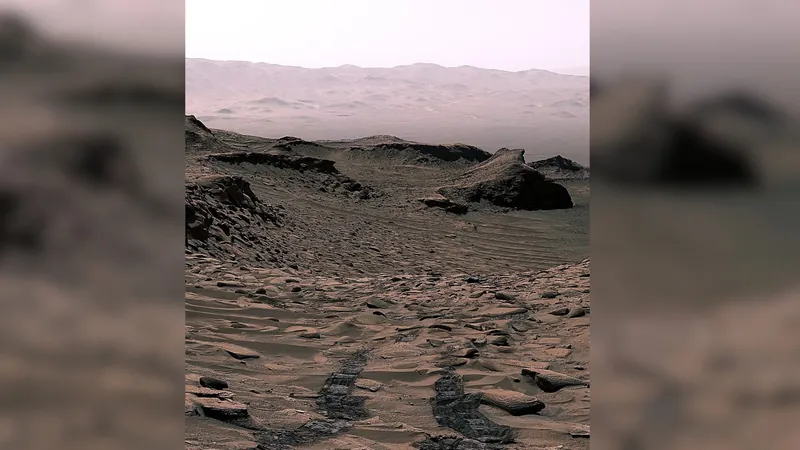
Unlocking Mars' Past: How Carbonate Rocks Reveal the Secrets of a Cold, Dry World
2025-07-02
Author: John Tan
Mars: From Watery World to Barren Desert
Once upon a time, Mars was not the cold, arid landscape we see today. Over 3.5 billion years ago, the Red Planet teemed with liquid water, featuring ancient river channels, vast deltas, and expansive lakes. But what caused this vibrant world to transform into the desolate environment we know now? Recent discoveries from Mars rovers may hold the key.
The Role of Carbonate Rocks
The Mars rovers have unearthed carbonate in sedimentary rocks, leading scientists to reconstruct the planet's dramatic climate shift. The Mars Atmosphere and Volatile EvolutioN (MAVEN) mission, launched in 2014, aimed to investigate the loss of atmospheric molecules from Mars. Surprisingly, research indicates that the carbon responsible for Mars' ancient atmosphere didn't simply escape into space.
A New Hypothesis: Carbonate Raining Down
Instead, the prevailing theory suggests that carbon from Mars' atmosphere precipitated out as rain and became trapped in the ground as carbonates. Initial searches yielded little evidence of these critical rocks until recent findings from the Curiosity rover, exploring Mount Sharp, and Perseverance, surveying the Jezero Crater, revealed vast deposits of carbonate.
How Carbon Dioxide Changed Everything
Carbon dioxide plays a vital role as a greenhouse gas, and its depletion likely had catastrophic effects on Mars' climate. Researchers led by Edwin Kite at the University of Chicago simulated the impact of atmospheric carbon loss on Mars’ climate over billions of years. As the sun has grown hotter, it has increased planetary temperatures, heightened precipitation, and driven more carbon into carbonate formations.
The Cooling and Drying of Mars
This cycle of carbon loss intensified as Martian volcanic activity diminished. Unlike Earth, where continuous volcanic outgassing replenishes carbon dioxide, Mars, which is roughly half Earth's size, lost heat rapidly, effectively stifling its volcanism. The result? A planet that gradually cooled and dried, punctuated by short-lived periods of liquid water.
Understanding Mars' Geological History
These revelations offer insight into the geological evidence of sporadic water on Mars over the past 3.5 billion years. However, this study hinges on the assumption that carbonate presence at Gale Crater is representative of the entire Martian surface. Further exploration and identification of carbonates across various regions will be crucial in confirming this theory.
The Quest to Reveal Mars' Mysteries Continues
The journey to uncover Mars' transformative past is ongoing. With each new discovery, scientists hope to piece together how this once-hospitable planet fell into a deep freeze, tantalizingly waiting to unlock more secrets from the red dust.



 Brasil (PT)
Brasil (PT)
 Canada (EN)
Canada (EN)
 Chile (ES)
Chile (ES)
 Česko (CS)
Česko (CS)
 대한민국 (KO)
대한민국 (KO)
 España (ES)
España (ES)
 France (FR)
France (FR)
 Hong Kong (EN)
Hong Kong (EN)
 Italia (IT)
Italia (IT)
 日本 (JA)
日本 (JA)
 Magyarország (HU)
Magyarország (HU)
 Norge (NO)
Norge (NO)
 Polska (PL)
Polska (PL)
 Schweiz (DE)
Schweiz (DE)
 Singapore (EN)
Singapore (EN)
 Sverige (SV)
Sverige (SV)
 Suomi (FI)
Suomi (FI)
 Türkiye (TR)
Türkiye (TR)
 الإمارات العربية المتحدة (AR)
الإمارات العربية المتحدة (AR)